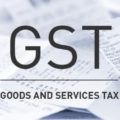The provisions relating to taxation of activities of charitable institutions and religious trusts have been borrowed and carried over from the erstwhile service tax provisions. All services provided by such entities are not exempt. In fact, there are many services that are provided by such entities which would be within the ambit of GST.
GST exemptions for specified services supplied by charitable and religious trusts have been provided in:
Notification No.12/2017-Central Tax (Rate) dated 28th June, 2017 S.Nos.1, 13 and 80.
Notification No.12/2017-Central Tax (Rate) dated 28th, June 2017, S.No.1.
This notification exempts services provided by entity registered under Section 12AA of the Income-tax Act, 1961 by way of charitable activities from whole of GST vide entry No. 1 of the notification, which specifies that “services by an entity registered under Section 12AA of Income-tax Act, 1961 by way of charitable activities” are exempt from whole of the GST. “charitable activities’ has been defined in the notification as under:
“charitable activities” means activities relating to:
(i) public health by way of:
(A) care or counseling of
(I) terminally ill persons or persons with severe physical or mental disability;
(II) persons afflicted with HIV or AIDS; (III) persons addicted to a dependence-
forming substance such as narcotics
drugs or alcohol; or
(B) public awareness of preventive health, family planning or prevention of HIV infection;
(ii) advancement of religion, spirituality or yoga;
(iii) advancement of educational programmes or skill development relating to:
(A) abandoned, orphaned or homeless children;
(B) physically or mentally abused and traumatized persons;
(C) prisoners; or
(D) persons over the age of 65 years residing in a rural area;
(iv) preservation of environment including watershed, forests and wildlife.
Thus, services supplied by charitable trusts are exempt from GST only if following conditions are satisfied.
(a) Entities are registered under Section 12AA of the Income-tax Act, and
(b) Services or activities by the entity are by way of charitable activities as listed in the notification.
There could be many services provided by charitable and religious trusts which are not covered by the definition of charitable activities as given in the notification. Such services would attract GST. For instance, services of transportation of passengers for a pilgrimage or grant of advertising rights to a person on the premises of the charitable or religious trust or on publications of the trust or granting admission to events, functions, celebrations, shows against admission fee or ticket etc. would be leviable to GST.
Notification no.12/2017-Central Tax (Rate) dated 28th June, 2017, S.No.13
This notification exempts services supplied by a person by way of
(a) conduct of any religious ceremony;
(b) renting of precincts of a religious place meant for general public, owned or managed by an entity registered as a charitable or religious trust under section 12AA of the Income-tax Act, 1961 (hereinafter
referred to as the Income-tax Act) or a trust or an institution registered under sub clause (v) of clause (23C) of section 10 of the Income-tax Act or a body or an authority covered under clause (23BBA) of section 10 of the said Income-tax Act:
Provided that nothing contained in entry (b) of this exemption shall apply to:
(i) renting of rooms where charges are one thousand rupees or more per day;
(ii) renting of premises, community halls, kalyana mandapam or open area, and the like where charges are ten thousand rupees or more per day;
(iii) renting of shops or other spaces for business or commerce where charges are ten thousand rupees or more per month.
Thus the amount charged, by whatever name called, for the conduct of any religious ceremony is exempt from GST. The exemption is applicable to conduct of religious ceremonies of all religions. Services other than by way of conduct of any religious ceremony such as granting rights to collect parking fee in the parking lot of the trust or granting photography rights in the premises against a fee or allowing advertisements on the premises of the religious place or in the publications of the trust shall be leviable to GST.
The notification also exempts renting of precincts of a religious place meant for general public owned by an entity registered under specified sections of the Income Tax Act subject to the consideration charged for such renting not exceeding the prescribed ceilings as given above.
The term “religious place”, as defined in clause (zy) of the said notification, means “a place which is primarily meant for conduct of prayers or worship pertaining to a religion, meditation, or spirituality”.
It has been clarified vide Circular No. 200/10/2016-Service Tax dated 6th September, 2016 issued in the context of identical exemption given from service tax that field formations may not take a restricted view of the word ‘precincts’ and consider all immovable property of the religious place located within the outer boundary walls of the complex (of buildings and facilities) in which the religious place is located, as being located in the precincts of the religious place. The immovable property located in the immediate vicinity and surrounding of the religious place and owned by the religious place or under the same management as the religious place, may be considered as being located in the precincts of the religious place and extended the benefit of exemption under Notification No. 25/2012-Service Tax, Sl. No. 5 (a) dated 20.6.2012. Exemption given under GST is identical to the exemption that was given under service tax law. This being the case, the said clarification is applicable for the purpose of the GST exemption also.
The exemption is applicable to renting of precincts of religious places of all religions.
Activities other than conduct of religious ceremony and renting of precincts will be taxable irrespective of the manner or the name in which the consideration is received. For example, if a donation is received with specific instructions or mutual understanding between the donor and the receiver that a religious place will host an advertisement promoting business of the donor, such donation will be subject to GST. But if donation is received without such instructions or without a quid pro quo in the form of supply of any goods or services by the trust to the donor, it shall not be subject to GST.
Notification No.12/2017-Central Tax (Rate) dated 28th June 2017, S.No.80
This notification entry exempts services by way of training or coaching in recreational activities relating to:
(a) arts or culture, or
(b) sports by charitable entities registered under section 12AA of the Income-tax Act.
Thus, services provided by way of training or coaching in recreational activities relating to arts or culture or sports such as dance, music, painting, literary activities, drama etc. of any school, tradition or language or any of the sports, by a charitable entity will be exempt from GST.
GST on management of educational institutions by charitable trusts: Activities of schools, colleges or any other educational institutions run by charitable trusts by way of education or skill development of abandoned, orphans, homeless children, physically or mentally abused persons, prisoners or persons over age of 65 years or above residing in a rural area, shall be considered as charitable activities exempt from GST.
“Rural area” has been defined in the notification as the area comprised in a village as defined in land revenue records excluding the area under any municipal committee, municipal corporation, town area committee, cantonment board or notified area committee or any area that may be notified as an urban area by the Central Government or a State Government.
Import of Services:
Any services received by charitable trusts registered under Section 12AA of Income-tax Act from a provider of services located outside India, for purpose of providing charitable activities are exempt from GST entry no. 10 of Notification no.9/2017-Integrated Tax (Rate) dated 28.06.2017 and the trust is not liable to pay GST on import of such services under reverse charge mechanism. However, this exemption shall not apply to online information and database access or retrieval (OIDAR) services received by charitable trusts. OIDAR services have been defined in section 2(17) of the IGST Act, 2017 and include services such as advertising on the internet, provision of e-books, music, movie, software, online gaming etc. However, compliance is not on the charitable trust under reverse charge.
Services by and to Educational Institutions (including institutions run by charitable trusts): Activities of a school, college or an institution run by a trust which do not come within the ambit of charitable activities as defined in the notification, will not be exempt under S. No. 1 of notification No. 12/2017-Central Tax (Rate). However, such activities may be exempt under S. No. 66 of the said notification provided the school, college or institution is an ‘educational institution’ as defined in clause (y) of paragraph 2 (Definitions) of the notification. S. No. 66 of the notification exempts services provided by an educational institution to its students, faculty and staff. It also exempts services supplied to an educational institution providing pre-school education and education up to higher secondary school or equivalent, by way of :
(1) transportation of students, faculty and staff of the eligible educational institution;
(2) catering service including any mid-day meals scheme sponsored by the Government;
(3) security or cleaning or house-keeping services in such educational institution;
(4) services relating to admission to such institution or conduct of examination.
Educational institution has been defined as an institution providing services by way of,-
(i) pre-school education and education up to higher secondary school or equivalent;
(ii) education as a part of a curriculum for obtaining a qualification recognised by any law for the time being in force;
(iii) education as a part of an approved vocational educational course;
“Approved vocational educational course” has been defined in clause (h) of paragraph 2 (Definitions) of the notification.
However, it may be noted that only such services as provided by an educational institution to its students, faculty and staff are exempt. Services provided to others such as renting of property (renting of book shops, canteen premises in school, renting of premises for holding a competitive examination) will be leviable to GST.
GST on arranging yoga and meditation camps by charitable trusts: As discussed above, services provided by entities registered under Section 12AA of the Income-tax Act, 1961 by way of advancement of religion, spirituality or yoga are exempt. Fees or consideration charged in any other form from the participants for participating in a religious, Yoga or meditation programme or camp meant for advancement of religion, spirituality or yoga shall be exempt. Residential programmes or camps where the fee charged includes cost of lodging and boarding shall also be exempt as long as the primary and predominant activity, objective and purpose of such residential programmes or camps is advancement of religion, spirituality or yoga. However, if charitable or religious trusts merely or primarily provide accommodation or serve food and drinks against consideration in any form including donation, such activities will be taxable. Similarly, activities such as holding fitness camps or classes such as those in aerobics, dance, music etc. will be taxable.
GST on arranging Yatras to different places by charitable trusts: Only such services of religious pilgrimage as are provided by Kumaon Mandal Vikas Nigam Ltd. or Haj Committee of India or a State Haj Committee constituted under the Haj Committee Act, 2002 in respect of a religious pilgrimage facilitated by the the Government of India, under bilateral arrangement, are exempt from GST. [Entry 60 of Notification No. 12/2017- Central Tax (Rate) dated 28th June, 2017] . Religious Yatras or pilgrimages organised by any charitable or religious trust are not exempt.
GST on running of public libraries by charitable trusts: No GST is applicable on activities of public libraries (including those run by charitable or religious trusts) by way of lending of books, other publications or knowledge-enhancing content/material. This activity has been specifically exempted by entry No. 50 of Notification No. 12/2017-Central Tax Rate dated 28th June, 2017.
GST on hospitals managed by charitable trusts: Entry 74 of Notification No. 12/2017-Central Tax Rate exempts (a) healthcare services by a clinical establishment, an authorised medical professional or paramedics and (b) services provided by way of transportation of a patient in an ambulance.
As per clause (zg) of para 2 of the notification, “health care services” means any service by way of diagnosis or treatment or care for illness, injury, deformity, abnormality or pregnancy in any recognised system of medicines in India and includes services by way of transportation of the patient to and from a clinical establishment, but does not include hair transplant or cosmetic or plastic surgery, except when undertaken to restore or to reconstruct anatomy or functions of body affected due to congenital defects, developmental abnormalities, injury or trauma.
“Clinical establishment”, as per clause (s), means a hospital, nursing home, clinic, sanatorium or any other institution by, whatever name called, that offers services or facilities requiring diagnosis or treatment or care for illness, injury, deformity, abnormality or pregnancy in any recognised system of medicines in India, or a place established as an independent entity or a part of an establishment to carry out diagnostic or investigative services of diseases.
This exemption is applicable to the services provided by a clinical establishment, an authorised medical professional or paramedics of a religious or charitable trust also.
Supply of food and beverages to the indoor patients as advised by the doctor/nutritionists is a part of composite supply of healthcare services and not separately taxable. Other supplies of food or drinks by a hospital to patients or their attendants or visitors would be taxable.
Similarly, supply of services other than healthcare services such as renting of shops, auditoriums in the premises of the clinical establishment, display of advertisements etc. will be leviable to GST.
GST on services provided to charitable trusts:
Services provided to charitable or religious trusts are not outside the ambit of GST. Unless specifically exempted, all goods and services supplied to charitable or religious trusts are leviable to GST.
GST on supply of goods by Charitable Trusts:
All goods, other than those specifically exempt, supplied by any charitable or religious trust against consideration in any form including donation are liable to GST.



